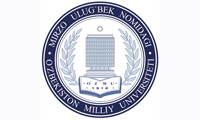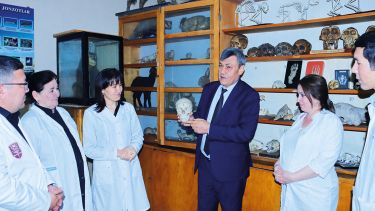
The National University of Uzbekistan’s strong focus on natural sciences puts academic research at the centre of its environmental impact strategy
The National University of Uzbekistan (NUU) is the oldest and largest university in the country. Most of its 17 faculties teach natural sciences and aim to address global and national issues related to the environment.
Several research projects at the university are focused on delivering positive environmental impact, from the creation of new bioinoculants to produce environmentally friendly products in stressed agroecosystems to research on the degradation of rainfed rangelands in Uzbekistan’s desert zones and mountains. Issues such as food security, the enhancement of soils, resource-saving technologies, organic farming and technological innovation are central to NUU’s research and align with the UN’s Sustainable Development Goals.
According to Inom Madjidov, rector of NUU, international collaboration is a crucial element of the university’s global impact. The Joint Uzbek-China Key Lab of Ecobiomes is an example of such cooperation, with the Xinjiang Institute of Ecology and Geography and the Chinese Academy of Sciences working with the university to better understand soil-plant-microbe interactions in arid landscapes.
NUU is working on several strategies to increase international partnerships. It is creating a global platform for research exchange and collaboration with its partners to contribute to the development of environmental impact worldwide. The university is also using interinstitutional funding to promote science subjects to students and early-career scholars. Through summer and winter schools, NUU is enhancing students’ academic skills and knowledge, as well as providing additional support to early-career women researchers.
Programmes organised by the Erasmus Mundus programme and the German Academic Exchange Service project provide further opportunities for research exchange between Uzbekistan and the EU. International exchange is also supported through regular cultural and environmental awareness activities on campus, ecological initiatives, field trips and practical activities with a direct aim to create a positive environmental impact.
In addition to international projects, NUU conducts national research projects with a focus on ecosystem protection, land degradation and soil protection. Future research plans include the development of adaptive technologies to improve pastures, research in agro-biotechnologies and the study of soils of the Aral Sea.
Madjidov stresses the importance of an all-round approach to higher education, reflected by NUU’s aim to strengthen and improve the relationship between humans and the environment. The university’s approach combines education, science and production, while supporting students to be innovative in their research.
Find out more about the National University of Uzbekistan.

